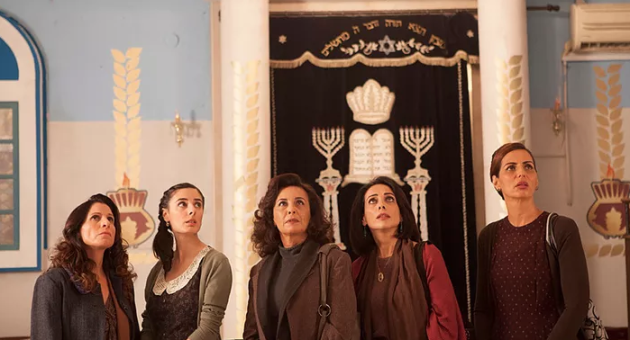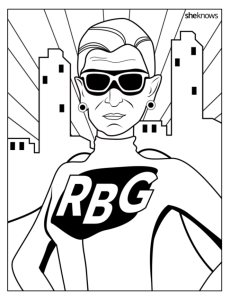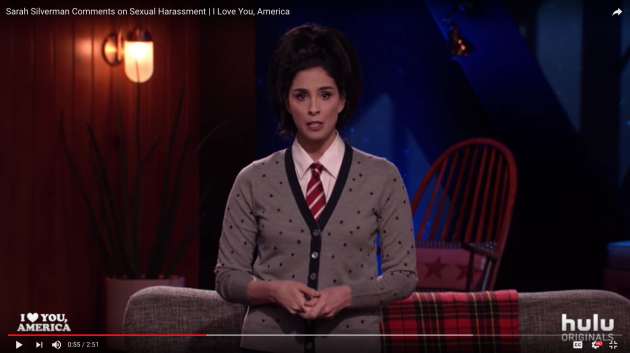
by Helene Meyers
7 Jewish Feminist Highlights of 2017
2017 has been a doozy of a year. It’s tempting to fall into despair or to become inured to news that goes from bad to worse. But we need to resist and to persist—and to do that, we need sustenance. The following have functioned as Jewish feminist manna for me this year, and I hope that Lilith readers find these 7 highlights of 2017 nourishing as well. (For those curious, 7 is the number associated with creation and blessing in Jewish tradition!)
1) Thanks to a lawsuit brought by Renee Rabinowitz, a retired lawyer and Holocaust survivor in her 80s, El Al airlines will no longer be able to ask women to change their seats to accommodate ultra-Orthodox men. As someone who wrestled with such a request on my first trip to Israel, I am inspired by Rabinowitz’s pursuit of justice and gender equality.
2) Jewish feminists had a banner year at the movies, with Gal Gadot playing Wonder Woman and Orthodox director Rama Burshtein showing her range with The Wedding Plan, whose comic pathos sharply contrasts with the intensity of her 2012 Fill the Void. But my favorite flick this year was The Women’s Balcony, (directed by Emil Ben Shimon and written by Shlomit Nehama) about the religious intolerance, activism, and alliances that result when a slick but nefarious rabbi inserts himself into a spiritual void. This smart movie with heart and hope tackles the issue of Jewish communities riven by gender fundamentalism.

https://www.menemshafilms.com/womens-balcony

http://www.sheknows.com/
3) For the third year running, Ruth Bader Ginsburg (aka The Notorious RBG) made my list, this time for her well-deserved inaugural Genesis Lifetime Achievement Award. There were rumors that RGB was nixed for political reasons from receiving the Genesis Prize (aka the Jewish Nobel Prize), which was awarded this year to Natalie Portman. No matter the backstory of these awards, the honoring of these two proud and profoundly gifted Jewish women is something to celebrate, especially given that all the other recipients of the Genesis Prize have been men.
4) Rachel Kadish’s novel The Weight of Ink is my top Jewish feminist literary pick. Kadish’s novel weaves a web of connections between Ester Velasquez, a Portuguese Jewish female scribe and philosopher living in London in the 1660s, and Helen Watt, a present-day aging historian who’s trying to preserve Ester’s voice even as she revisits her own repressed romantic plot. Both Ester and Helen are part of a long literary line of what writer Rebecca Goldstein has termed “mind-proud women.”
5) As Rabbi Hara Person reminds us, 2017 is the 10th anniversary of The Torah: A Woman’s Commentary, a joint publication of CCAR Press and the Women of Reform Judaism. This winner of the 2008 National Jewish Book Award is a Shekhinah-send for those of us who critically embrace our textual traditions. One of the many innovations of this commentary is the “voices” section that includes Torah-inspired poetry associated with each parashah (Torah portion).
6) Alma, a new website for Jewish millennial women, launched in June, and it’s a welcome addition to the Jewish internet. Edited by Molly Tolsky, Alma bills itself as a community of “ladies with chutzpah” and takes its name from “the Hebrew word for women who are of childbearing age but don’t have kids.” Although I am two decades older than the targeted demographic, I find lots to like on this site, including Tolsky’s own “these 9 items prove that Hanukkah-chic is totally a thing” and “They Don’t Have to Touch You For It to Be Abuse.”
7) On her new TV show, I Love You, America, Sarah Silverman refused to avoid “the masturbating elephant in the room” and expressed her horror, heartbreak, anger, and ambivalence that fellow comedian Louis C.K. is among the many men guilty of sexually harassing women. Silverman unequivocally established clear priorities for this moment: “the only people that matter right now are the victims.” Yet she also copped to her own complicated feelings: “I hope it’s OK if I am at once very angry for the women he wronged and the culture that enabled it and also sad because he’s my friend.” To my mind, support for survivors, critical analysis of rape culture, and an acknowledgment that we sometimes have meaningful relationships with misogynist men are all crucial for healing our very broken world.
Helene Meyers is Professor of English and McManis University Chair at Southwestern University in Texas. The author of three books, most recently Identity Papers: Contemporary Narratives of American Jewishness, she is currently at work on a project about Jewish American movies. Her more journalistic work has appeared in Lilith, Tablet, Forward, Ms. Magazine Blog, the Washington Independent Review of Books, the Chronicle of Higher Education, and Inside Higher Education. Find her on Twitter: @helene_meyers.
The views and opinions expressed in this article are the author’s own and do not necessarily reflect those of Lilith Magazine.